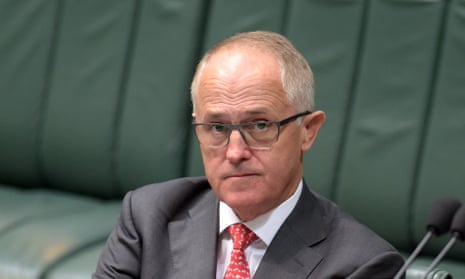In the novel Candide, Voltaire explains how “in this country, it is wise to kill an admiral from time to time to encourage the others”.
SBS seems to have a similar policy, with the dismissal of Scott McIntyre presumably intended pour encourager les autres. The message is obvious: if you want to work for us, you’ll say the same thing as everyone else.
After all, McIntyre didn’t lose his job for journalistic inaccuracy.
As far back as 1929, Robert Graves, in his Goodbye to All That, noted the reputation Australian soldiers had earned for executing prisoners, a topic subsequently (and exhaustively) documented by the historian Dale Blair in his little book No quarter: unlawful killing and surrender in the Australian war experience 1915-18.
In 1915, the Anzacs came to Egypt from a nation fiercely attached to White Australia: it’s not, then, surprising that, as Suzanne Brugger documents in Australians and Egypt 1914-1919, they treated the locals as “degenerate”. As for Hiroshima, McIntyre’s scarcely alone in regarding the detonation of an atomic bomb as an abominable crime.
Thus, as Professor Philip Dwyer notes, “historically speaking ... McIntyre is not all that far off the mark”.
But that’s wasn’t the point. Had McIntyre tweeted, “Thank you Anzacs for fighting for our freedom”, everyone knows he’d still be on the payroll – even though, in reality, the Gallipoli invasion aimed not to liberate Australia but to hand the Dardanelles (as per the terms of the secret Constantinople Agreement) to the Russian dictatorship, the most repressive regime in all Europe.
The lesson? It’s OK to spout nonsense – so long as as it’s conventional nonsense. Yet such overt and clumsy interventions to discipline reporters are comparatively rare.
Indeed, the bigger threat to quality journalism isn’t the public dismissal of those who, like McIntyre, express unorthodox ideas. It’s the cultivation of a system in which unorthodox ideas don’t get formed in the first place, because journalists and writers learn to bite their tongues.
Or, to put it another way, the stick matters less than the carrot in an industry structured to reinforce and reward conformity, particularly in respect of politics.
The ALP’s Barry Jones recently argued that on most major issues the major parties have adopted almost identical similar stances.
“For Australian voters,” Jones explained, “[elections are] like choosing between Coles and Woolworths. At present, Australia is ruled by a Grand Alliance, which refuses to engage in serious examination of, say, climate change, planning for a post-carbon economy, education reform, rethinking foreign policy, or securing an appropriate revenue base for an ageing society with increasingly sophisticated health needs and the shadow of Alzheimer’s.”
For journalists and commentators, the implications of that convergence are obvious. The writers who express an opinion outside the consensus deal themselves out of the game. By definition, the electoral contest will unfold within the parameters defined by the two parties capable of forming government.
Those who identify themselves with ideas that differ too greatly from the policies on offer become irrelevant to the cut and thrust of the campaign – and thus will no longer be treated as what Paul Krugman dubbed “Very Serious People”.
As a result, if you want to be a journalistic player, you keep your opinions within a very narrow range, defined by Jones’ Grand Alliance of the political class.
We’re often told that the narrowness of that mainstream consensus reflects the willingness of politicians to pander to the oafish masses. In fact, that’s pretty much what Jones argues.
“A central failure in the current political debacle,” he says, “has been the pursuit of populism, fearful of serious analysis of the major ongoing problems that face societies like ours. Both the Coalition and Labor are at fault in this. I have sometimes fantasised that there could be room for a new party, called Courage, but I don’t see it on the horizon.”
But it’s simply wrong to blame the public for this policy convergence. For instance, the Cult of Anzac did not arise organically but was systemically rebuilt from the top down.
As Marilyn Lake argues in her What’s Wrong with Anzac?, a book co-edited with Henry Reynolds, huge resources have gone to ensuring Australians remember the Great War in the correct fashion:
The vast pedagogical enterprise of the Department of Veterans’ Affairs – which under its Commemorative Activities programme has supplied all schools in Australia, primary and secondary, with voluminous and sophisticated curriculum materials, websites, virtual tours of the battlefields, handsome prizes including trips to Gallipoli and other battlefields – has been made possible by massive funding from the federal government, the budget for this activity increasing from $4,215,000 in 2001-2 to $5,878,000 in 2007-8. … Has the equivalent happened in any other democratic country?
Since, then, of course, we’ve learned that the costs of commemorating the Great War have risen to $430m, a truly staggering sum suggestive of just how important the political class believes the maintenance of the Anzac myth to be.
With Jones’ other examples, the claim that the narrow political consensus simply reflects popular sentiment is even less tenable.
Certainly, if pundits want to be Very Serious, they must frame their thoughts on foreign policy within the context of the US alliance, wholeheartedly embraced by both parties. But the polls persistently reveal an Australian public with rather different views.
For instance, for years, surveys revealed overwhelming opposition to the Australian commitment to the US’s Afghan war, even as both the Labor and Liberal parties insisted on the value of the mission.
Similarly, public opinion has steadily shifted on the question of Israel, a topic on which Australian parliamentarians continue to march in lockstep with the US. “The overwhelming trend,” argued Peter Manning in 2012, “shows a sharp swing since the 1980s against Israel’s image and actions among ordinary Australians. The fact of the current disjunction between government policy and public attitudes on the Israel-Palestine issue receives almost no publicity”.
Nevertheless, it’s still more-or-less obligatory, if you want to be a Very Serious commentator, to mutter something about a two-state solution, even as it’s increasingly apparent that a two-state solution is never going to happen.
Finally, Tim Dunlop recently pointed out the obvious “consensus in regard to economic policy”, arguing that the major parties are both “committed to an economic platform that we might broadly call neoliberal, a system that seeks to introduce market ‘discipline’ into the workings of government”.
As he also noted, that consensus extends from the politicians to the political class as a whole: the embrace of free market economics is, indeed, a hallmark of Very Serious writing.
Yet, much to the chagrin of the political class, the public remains resolutely and consistently hostile to privatisation, deregulation and the other nostrums associated with market discipline, so much so that part of being Serious is accepting that, on some questions, the popular will shouldn’t be represented at all – that, when it comes to, say, economic reform, the task of the politician is to find a way of circumventing the public.
Jones-style calls for political “courage” are not so much circuit breakers but commonplaces, and they invariably mean the courage to persist with a policy accepted by the political class and loathed by everyone else.
The pressure on journalists to embrace the consensus doesn’t mean that all pundits write precisely the same column.
Just as the policy convergence of the parties has fostered a rhetorical stridency to accentuate the small variations on display, the intellectual narrowness of Very Serious punditry encourages rhetorical differentiation (“hot takes”, contrarianism, even overt trolling) so long as the accepted conclusion eventually gets articulated.
As a young journalist, Christopher Hitchens put it like this:
In the charmed circle of neoliberal and neoconservative journalism, ‘unpredictability’ is the special emblem and certificate of self-congratulation. To be able to bray that ‘as a liberal, I say bomb the shit out of them’ is to have achieved that eye-catching, versatile marketability that is so beloved of editors and talk-show hosts.
Later, he provided a neat demonstration of the point via his own career, graduating to Seriousness as he began polemicising for George Bush’s various wars.
Of course, in recent years, the rise of the online sphere – and, even more so, the growth of social media – means that readers can access far more journalism than would ever previously have been possible.
Nevertheless, for the time being, Very Serious journalism still occupies a privileged place in the media landscape, if only because it corresponds with the attitudes of those who form government.
That’s what’s so interesting about SBS’s actions. Yes, Scott McIntyre’s views were probably unpopular. But he wasn’t sacked because of an outcry from the public but rather after the direct intervention of a senior politician. And that – the perceived need to immediately discipline a journalist for wandering off script – suggests an awareness of how fragile the popular base for the political consensus has now become.

